Felines have a reputation for being nervous, which means it can be pretty easy to spike anxiety in a cat. Seemingly always on high alert, even when napping, cat anxiety seems to be lurking just beneath the surface, waiting for a dog bark or a car alarm to erupt into wide eyes and puffy fur. Even an unfamiliar visitor can trigger a wild case of nerves in a cat.
But when do skittish feline nerves step over the line into a real problem? How can you tell if your cat is just jumpy or experiencing serious mental turmoil? Clinical Behavior Resident, Dr. Krista A. Sirois, DVM, defines anxiety as “the anticipation of a danger or threat.” In the anxious mind, the threat never ends, and the anticipation rarely quiets.
Anxiety is a very real and debilitating illness for some cats, but with help and love, cats with anxiety can live a peaceful life.
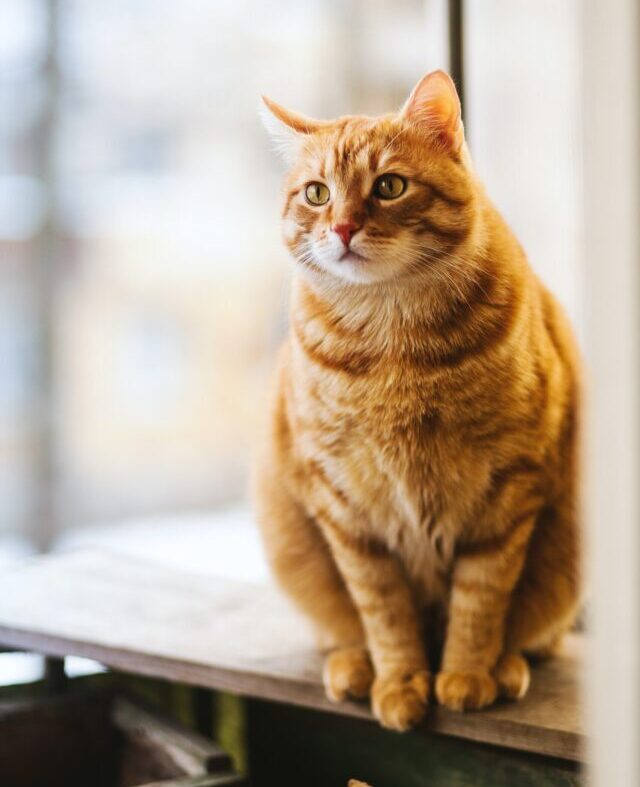
Do you know how to spot the difference between the occasional ‘fraidy cat moment and true anxiety?
Cat Anxiety Symptoms
Cats can develop anxiety issues for a number of reasons. Illness, age, or too much time alone can bring on anxiety, as well as a lack of socialization in kittenhood. Major life changes, like moving or losing a much-loved human, have the power to spark problems too. And sadly, abuse and cruelty scars not only physically, but in ways that leave cats with fear, trust, and anxiety issues.
Luckily, anxious cats can find peace in the arms of the right human, but first, you must spot the signs.
Look for these symptoms of anxiety in cats to get a better idea what’s going on in your kitty’s head:
- Excessive hiding
- Sudden aggression in usually docile cats
- Excessive vocalization and pacing
- Urination outside the litter pan
- Appetite changes, loss of interest in food OR overeating
- A general sense of malaise
- Increased sleeping
- Pica or licking wood, plastic, metal, or other surfaces
You’ll also notice body language symptoms, such as dilated pupils, tight and low crouching, tail wrapped close to the body, and flattened ears, according to Dr. Sirois.
To read more about anxiety symptoms in cats, have a look at these 7 signs.
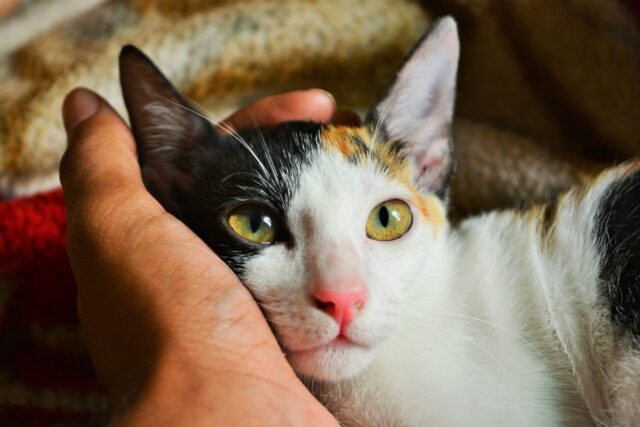
The good news is your cat doesn’t have to live in a constant state of anxiety. Here are 9 ways to reign it in and help her live a more calm and comfortable life.
Tips for Dealing with Cat Anxiety
1. Get to the Root of Your Cat’s Anxiety Problem
Some cats are anxious by nature and you won’t be able to find a root cause. Everything will seem like a trigger. But what your anxious cat needs most is reassurance, calm, and all the love they can handle! While there are those rare cats with unexplained anxiety, most cats become anxious because of a specific situation. And these situations can often be remedied with a little consideration.
Think about when your cat started exhibiting anxious behavior. What changed in her environment around that time? Is there a new person in your household? Did you add a new animal to your family? Is there noisy roadwork happening outside your house? Is she recovering from being sick or an injury? Knowing the cause of her anxiety can help you make a plan, whether that means finding a solution to a long-term problem or finding ways to soothe her through a temporarily stressful time.
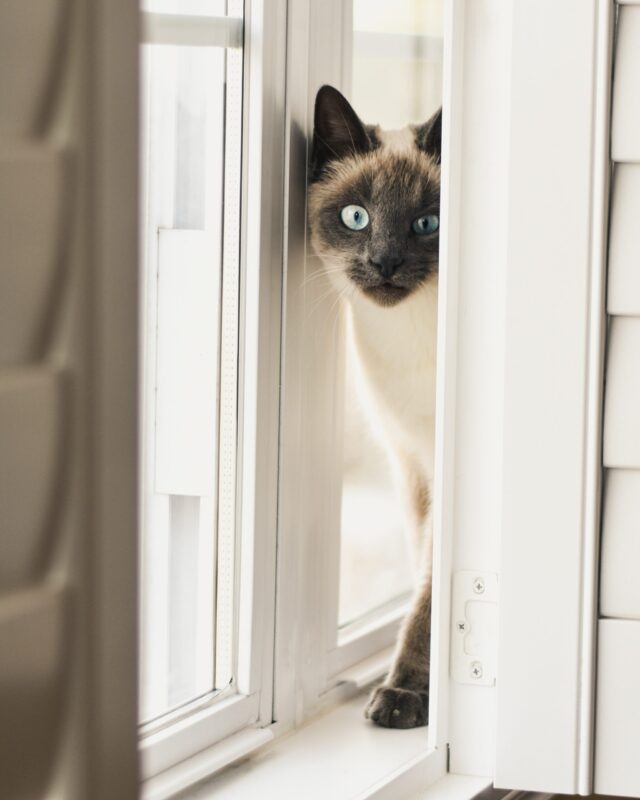
2. Use a Synthetic Feline Facial Pheromone Diffuser
Has your cat ever rubbed her cheek against your hand as you pet her? Sure she has! And you can take it as a sure sign of your cat’s attachment to you!
Cats use the pheromones in their cheeks to mark people and places they’ve deemed safe and secure. Using a synthetic feline facial pheromone like Feliway, you can soothe an anxious cat to feel more safe and comfortable in her environment. Synthetic feline facial pheromones come in diffusers, which simply plug-in for continuous results. They also come in spray versions, which can help with more sporadic anxiety. For example, spritzing the cat carrier and car before a trip to the veterinarian can help kitty feel a little calmer.
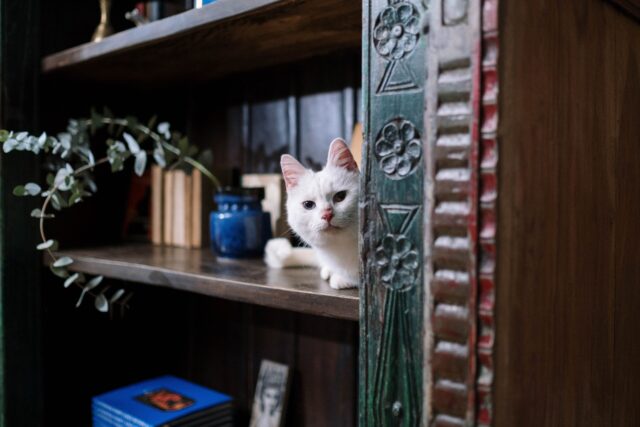
3. Try Natural Calming Supplements for Cat Anxiety
With so many natural calming supplements on the market, it can be hard to choose the right one for cat anxiety. It’s best to ask the vet their opinion as they know your cat’s medical history and what could help them the most. Calming supplements and treats are all formulated differently, using an array of natural or herbal components to achieve calmness. Some use L-Theanine, a tea extract known for its stress-relief properties. Other brands formulate their recipes with L-Tryptophan and Melatonin to calm your cat into sleepiness. Soothing supplements are best used as an occasional stress relief aid.
Another option for aiding cat anxiety is CBD oil and chews. Cannanine explains, “CBD is thought to alter serotonin signals. Serotonin is a hormone that regulates your mood. Many antidepressants for people affect how the brain reacts to serotonin, improving their symptoms. CBD is thought to work similarly to help the brain react to serotonin, making your kitty feel better and more relaxed.”

4. Gentle Massage Therapy for Cat Anxiety Relief
Cat anxiety can be soothed with gentle massage if he’s willing. Let a scared cat hide if that’s his desire, but if he wants to be handled, Certified Canine and Feline Massage Therapist Regan Macaulay offers some simple massage techniques you can try at home.
And, if your cat doesn’t mind having his paws rubbed, try out paw reflexology for soothing effects and balanced energy. Back rubs or paw massage, the connection between cat parent and kitty kid that comes with massage will also help in calming an anxious cat.
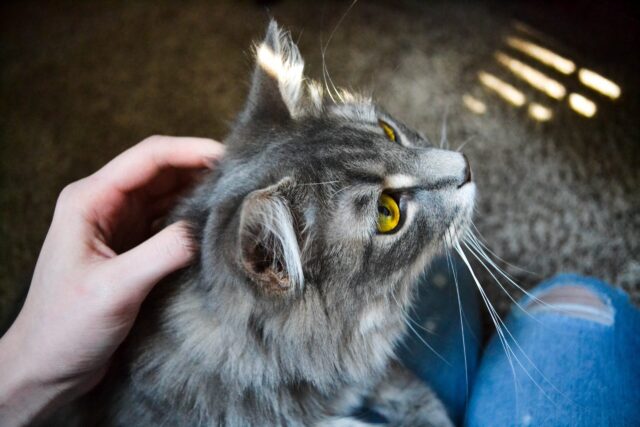
5. Provide Plenty of Cat Trees and Hiding Spaces
When you have felines, cat trees, perches, and hiding spaces are a necessity. Even more so if you suspect other animals cause your cat’s anxiety in the home. Cats instinctually like to perch on high to stalk prey and avoid becoming prey themselves. Without the option to oversee their environment from above, your cat may be left feeling like a vulnerable target for an ambush. And when not sitting up above, cats need a spot to hide away and observe the world for the same reason. Feeling constantly exposed can lead a cat down an unhappy road where he constantly anticipates his doom, which proves not good for the feline psyche.
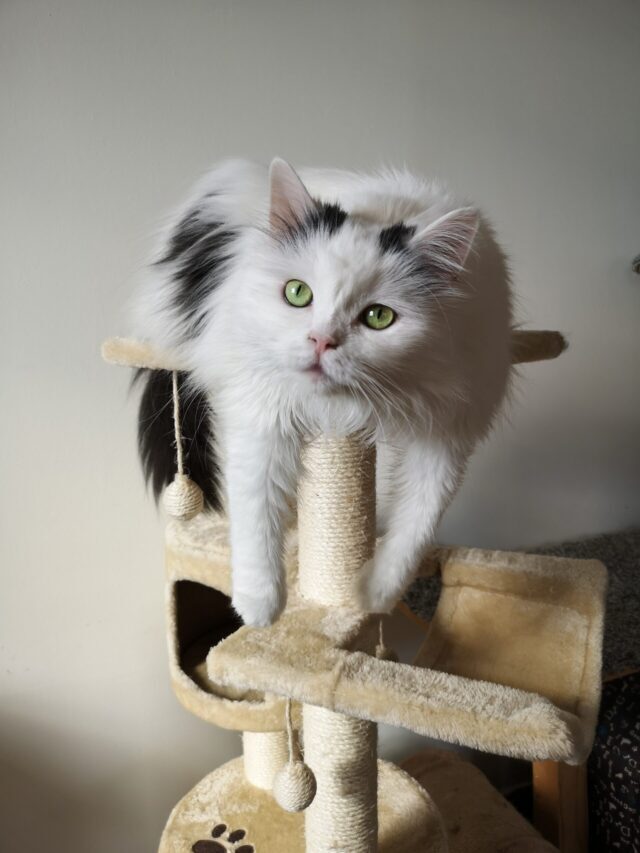
6. Play More to Tire Out Your Cat’s Anxious Energy
Playing with your cat is a great way to distract her and help her release some pent-up nervous energy. Prioritize time each day to play with your feline friend. Think of playtime as therapy in which your cat can jump, tumble, roll, and swat out their feelings. Keep the toy selection fresh and full of choice as part of your cat’s anxiety toolbox. If you can’t make the time to play consistently, consider adding some interactive toys in your home to stimulate your cat when you aren’t there.
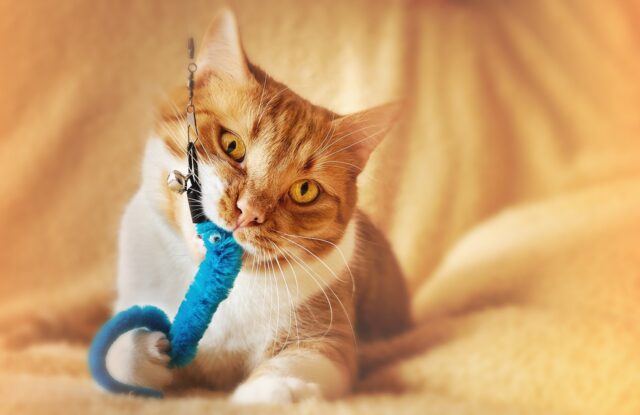
7. Watch Your Own Body Language
Creatures of instinct and body language, cats are very aware of their environments, able to pick up on even the slightest signals of your own stress. And since our kitty-loves can sometimes feel our feelings, our upsets can cause them to be anxious or high-strung by default. Sometimes simply altering the way you speak and move around your cat can help soothe him. Try intentionally moving slowly, maintaining a calm attitude, and speaking softly when he’s around. Also, by learning feline speak, you can communicate calmness to your cat in his own language.
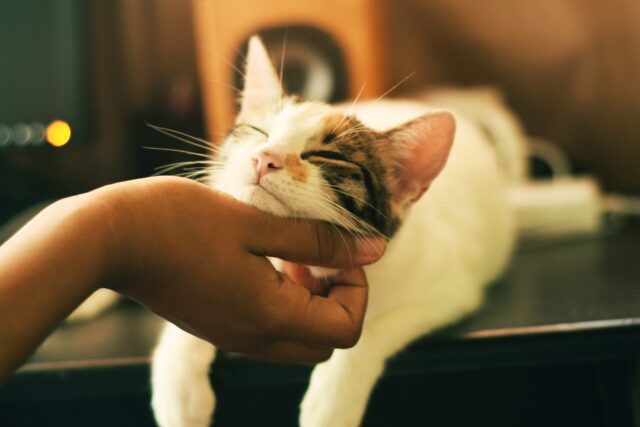
8. Increase Shared Resources to Reduce Cat Anxiety
In a multi-cat home, shared resources, like a food bowl, perch, or litter box, can cause a significant amount of stress if one cat feels bullied or denied access. Try adding more bowls, beds, and boxes in several different locations around your home, allowing each cat to always have access to what they need, even if another is guarding a certain resource.
A good example involves the litter pan as cat anxiety often manifests around the box. To keep all the cats happy when it comes to the potty, follow this rule: supply one litter box per cat, plus one more for good measure. Everyone has their own spot to go and a spare, therefore alleviating nervous feelings at the litter box. For more tips on multi-cat living, check out 6 Ways to Keep the Peace in a Multi-Cat Home.
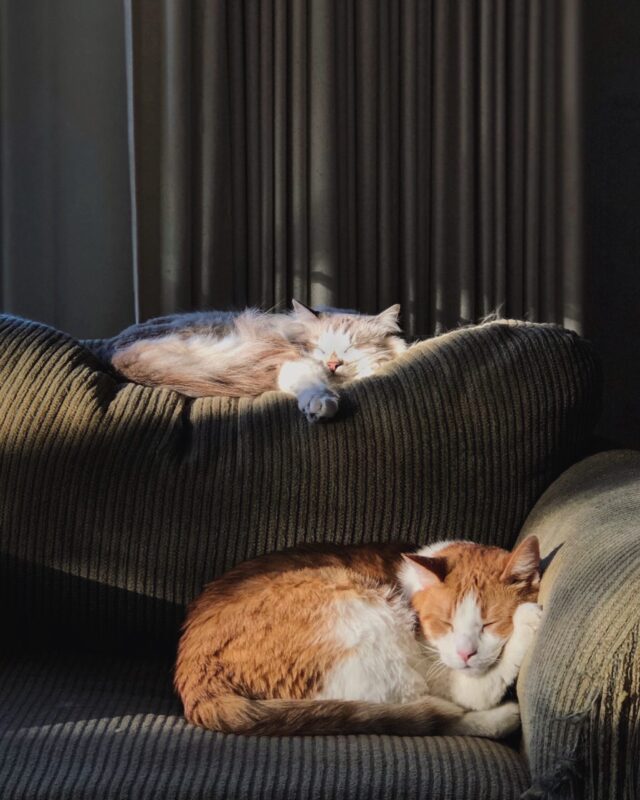
9. Discuss with Your Veterinarian
Above all else, if your cat displays symptoms of chronic anxiety, have a discussion with your veterinarian. There might be a medical reason behind your cat’s anxiety that can only be solved with professional treatment. Since traveling to the vet can cause a lot of stress on its own, study up on these 5 Tips for Less Traumatic Vet Visits before pulling out the cat carrier.

